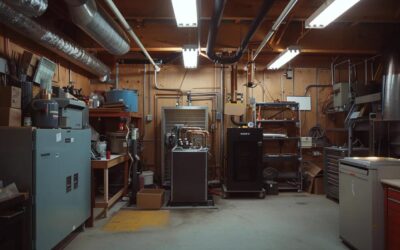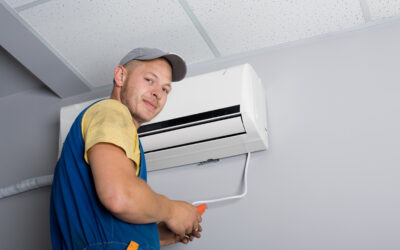How Much Does AC Repair Cost? A Complete Guide to Understanding What You Should Pay
This guide explains the typical costs of AC repair in the United States, the factors influencing pricing, common repair scenarios, and comparisons among major brands. It also covers DIY versus professional repair, preventative maintenance, and advice for finding reliable technicians.
What Is the Average Cost of AC Repair in the United States?
Typical AC repair costs generally range between $150 and $500 per service call, though major component repairs can cost significantly more. Factors such as repair type, geographic location, and technician labor rates all impact pricing. During peak seasonal demand—especially in summer—emergency repairs may incur premium fees.
What Are Typical Price Ranges for Common AC Repairs?
- Minor repairs: Capacitor replacements cost about $150 to $250.
- Refrigerant leaks: Repairs range from $200 to $500.
- Compressor repairs/replacements: Costs generally fall between $1,000 and $2,500.
These figures include labor, parts, installation fees, and diagnostics; obtaining multiple quotes is recommended.
How Do Labor and Parts Costs Influence the Average Repair Price?
Labor expenses vary by region and technician expertise, typically ranging from $75 to $150 per hour. Parts costs depend on whether generic or OEM components are used, with OEM parts generally costing more. The overall price may be a flat rate or hourly charge, and regular maintenance can help prevent costly emergency repairs.
Can Seasonal Demand Affect AC Repair Pricing?
Yes. High-demand periods in summer can increase request volumes, leading technicians to charge higher rates and add seasonal surcharges. In contrast, off-peak seasons such as fall or winter may offer lower repair costs and shorter wait times.
What Factors Affect the Cost of AC Repair?
Several variables determine AC repair expenses: – Labor rates and service fees: Regional wage differences and diagnostic charges. – Replacement parts: Whether parts are brand-specific (OEM) or aftermarket. – Repair complexity: Disassembly difficulties or multiple issues increase labor time. – Location: Urban areas and climates with extreme weather tend to have higher prices.
How Do Labor Rates and Service Fees Impact Repair Costs?
Technicians may charge a service fee of about $75 to $100 plus an hourly rate between $75 and $150. These fees cover travel, diagnostic work, and labor. Some companies offer discounts with service contracts.
What Role Do Replacement Parts and Brand Models Play?
High-quality OEM parts, though more expensive, ensure reliability and warranty coverage. If parts are scarce or discontinued, prices may rise. Brand loyalty and the specific model of the AC unit can also affect the cost.
How Does the Complexity of the Repair Affect Pricing?
Repairs requiring disassembly of multiple components or addressing simultaneous issues (e.g., refrigerant leak with compressor failure) demand more labor hours, resulting in higher costs. Older or less accessible systems may require specialized tools, further increasing expenses.
Why Does Your Location or Service Area Matter for Pricing?
Local market conditions, transportation costs, and climate all influence pricing. Metropolitan areas and regions with high living costs charge more, while rural areas may add travel fees. Extreme climates may lead to more frequent repairs and higher emergency fees.
How Much Does It Cost to Repair Specific AC Problems?
Understanding costs for specific issues helps decide whether to repair or replace components.
What Is the Cost to Fix a Refrigerant Leak?
Refrigerant leak repairs typically cost between $200 and $500. Besides repairing the leak, the technician may need to recharge the system. Costs depend on leak severity, refrigerant type, regional pricing, and technician rates. Early detection via maintenance can prevent further damage.
How Much Does Compressor Replacement Typically Cost?
Compressor replacement generally ranges from $1,000 to $2,500. This high cost reflects the component’s importance in the refrigeration cycle and the labor-intensive process required for replacement. Sometimes, underlying maintenance issues contribute to compressor failure.
What Are the Expenses for Capacitor Replacement and Fan Motor Repairs?
Capacitor and fan motor repairs are usually less expensive, typically falling between $150 and $300. Though the parts themselves are inexpensive, labor costs drive the price. Timely repairs prevent additional system strain and future costly fixes.
How Much Does Ductwork Repair Add to AC Repair Costs?
Ductwork repair costs vary widely from $500 to over $2,000, depending on the work needed such as sealing leaks, replacing sections, or improving insulation. Although these repairs are pricey, they enhance indoor air quality and system performance, potentially reducing energy costs over time.
How Do AC Repair Costs Vary by Brand?
Repair costs vary among AC brands due to differences in component quality, technology, and design. Premium brands often incur higher repair costs than budget-friendly options.
What Is the Average Repair Cost for Carrier AC Units?
Carrier units generally cost between $200 and $600 for common repairs. A wide parts availability and widespread service network help keep costs moderate, although major repairs like compressor replacement may be pricier.
How Much Does Trane AC Repair Usually Cost?
Trane units, known for durability, typically cost between $250 and $700 for routine repairs. Major repairs can be more expensive due to proprietary parts and specialized labor, though their reliability may reduce frequent service needs.
What Are Lennox AC Repair Prices Compared to Other Brands?
Lennox units, being high-end with advanced features, have repair costs ranging from $300 to $800. Their sophisticated components and technology cause higher repair expenses, but the energy efficiency and quieter operation support their premium status.
Are There Cost Differences for Other Major AC Brands?
Yes. Goodman and Rheem often have lower repair costs, typically between $150 and $500. Goodman models are simpler and easier to maintain, while Rheem products provide a balance between performance and cost.
Should You Choose DIY or Professional AC Repair? Cost and Safety Considerations
When considering DIY versus professional repair, homeowners must weigh initial cost savings against potential risks and long-term expenses.
What Are the Pros and Cons of DIY AC Repair?
DIY repairs can save money on labor fees if you have the required tools and technical skills. However, a steep learning curve, risk of misdiagnosis, potential for additional damage, and voided warranties make DIY repairs risky.
How Do DIY Repair Costs Compare to Professional Services?
While DIY involves only parts and tool costs (about $50 to $200), professional services add labor, diagnostic fees, and often a warranty. In many cases, the assurance and quality from professionals make them more cost-effective in the long run.
What Safety Risks Should You Consider Before Attempting DIY Repairs?
DIY repairs pose risks such as electrical shock, exposure to refrigerants, and unintentional system damage. Incorrect repairs can lead to inefficiencies, higher energy bills, and potential safety hazards. For these reasons, complex repairs are generally best left to professional HVAC technicians.
How Much Does Preventative AC Maintenance Cost and Why Is It Worth It?
Regular preventative maintenance helps keep your AC running efficiently and prevents minor issues from becoming costly repairs.
What Are the Typical Costs for Tune-Ups and Inspections?
Tune-ups and inspections usually cost between $75 and $200. These services include cleaning, lubrication of moving parts, and early detection of potential issues, which help maintain peak performance and reduce energy consumption.
How Can Regular Maintenance Reduce Future Repair Costs?
By addressing problems early—such as minor refrigerant leaks or loose connections—maintenance prevents more extensive damage and decreases the likelihood of emergency repairs. Efficient operation also results in lower energy bills and extended equipment lifespans.
What Maintenance Plans Are Available and How Do They Affect Costs?
Maintenance plans vary from basic annual inspections ($150–$300 per year) to comprehensive service contracts ($300–$600 per year) that include multiple visits, filter replacements, and emergency discounts. Such plans provide cost predictability and ensure regular upkeep.
How Much Should You Expect to Pay for Emergency AC Repair Services?
Emergency repairs generally cost 20% to 50% more than scheduled repairs due to after-hours labor and expedited service requirements.
What Are Common Emergency AC Repair Issues and Their Costs?
Emergency issues such as complete system shutdowns, severe refrigerant leaks, and major electrical failures can range from $300 to over $800. For example, a refrigerant leak repair in an emergency may cost $400 to $700.
How Do After-Hours and 24/7 Service Fees Affect Pricing?
Technicians working outside normal business hours charge extra fees (typically an additional $50 to $150) to compensate for overtime and travel. These fees can increase the overall repair cost significantly.
How Can You Find Reliable Emergency AC Repair Technicians?
To find trusted emergency repair services, check online reviews, ask neighbors for recommendations, verify certifications, and compare written estimates. Reputable companies often offer transparent pricing and warranties even for emergency repairs.
How Do You Find a Reliable AC Repair Technician and What Should You Expect to Pay?
Choosing the right technician is crucial for reliable, long-term AC performance. Research local companies, evaluate customer feedback, and verify licensing and certifications.
What Qualifications and Certifications Should a Technician Have?
A good technician should be NATE-certified (or hold a similar certification), licensed by local authorities, and carry liability and workers’ compensation insurance. Ongoing training is also important for keeping up with advances in HVAC technology.
How Do Customer Reviews and Ratings Influence Your Choice?
High ratings and positive reviews indicate punctuality, transparency in pricing, and effective repairs. Look for consistent feedback regarding diagnostic thoroughness and communication; negative reviews may signal issues such as hidden costs or poor workmanship.
What Questions Should You Ask Before Hiring an AC Repair Technician?
Ask about the diagnostic process, service fee structure, and whether a written estimate is provided before starting work. Inquire about warranties on repairs, experience with your AC model, and any special training or certifications.
How Does Technician Experience Affect Repair Costs and Quality?
Experienced technicians often diagnose and repair issues faster and more accurately, reducing overall labor time and long-term costs. While their hourly rates may be higher, the reduced risk of recurring problems often ensures better value.
Frequently Asked Questions
Q: What factors contribute most to AC repair costs? A: Labor rates, replacement parts, repair complexity, and brand-specific issues are key factors. Seasonal demand and geographic location also influence costs.
Q: How can regular preventative maintenance lower repair expenses? A: Maintenance catches small problems early, improving system efficiency and prolonging component life, thereby reducing the need for expensive emergency repairs.
Q: Is it advisable to attempt DIY repairs on an AC unit? A: DIY repairs can save on labor costs but carry risks including misdiagnosis, safety hazards, and potential warranty voiding. Professional repairs are generally safer and more reliable.
Q: What should I look for in a reliable AC repair technician? A: Choose a technician who is certified (e.g., NATE-certified), licensed, insured, and well-reviewed by previous customers. Transparent pricing and clear communication are also important.
Q: Are repair costs the same for all AC brands? A: No, repairs for high-end brands like Lennox and Trane typically cost more due to premium parts and technology compared to brands like Goodman or Rheem.
Q: How does location affect AC repair pricing? A: Urban areas generally have higher rates due to increased labor costs, while rural areas may add travel fees. Local demand and climate conditions also influence pricing.
Q: What are common hidden fees in emergency AC repairs? A: Hidden fees may include after-hours surcharges, diagnostic fees, and travel charges. Always ask for a detailed estimate to understand the full cost.
Final Thoughts
AC repair costs depend on various factors including labor, parts, repair complexity, and brand differences. Understanding these components helps homeowners make informed decisions, balance immediate repair needs with long-term maintenance, and choose the right technician. Investing in regular care and quality service ultimately ensures efficient AC operation, energy savings, and lasting comfort.



